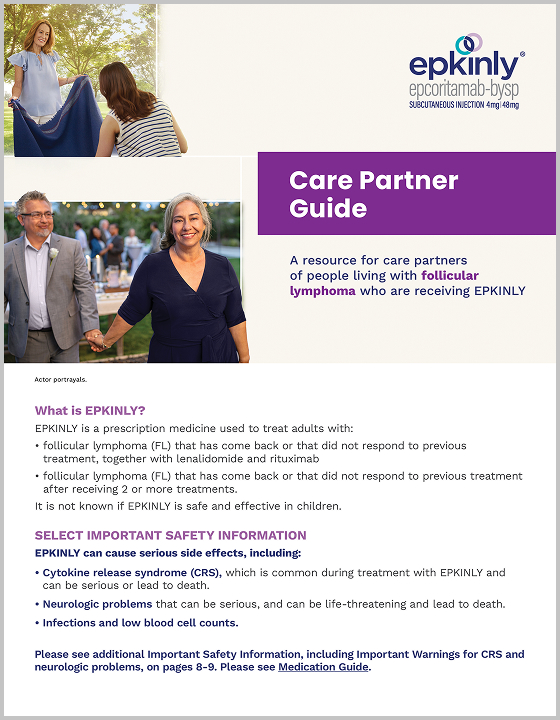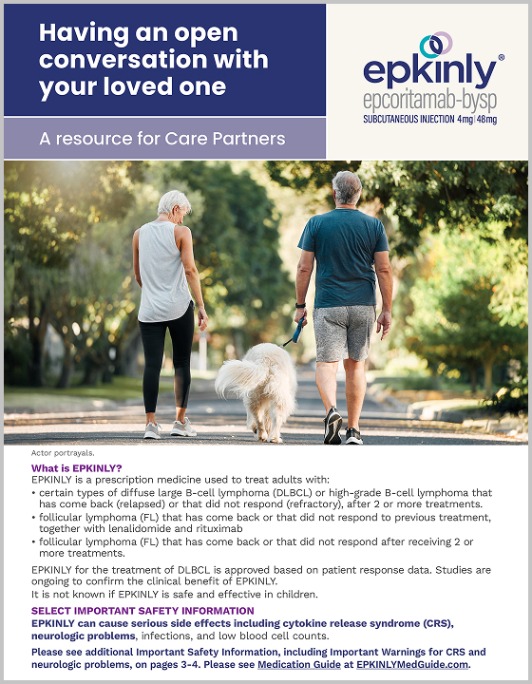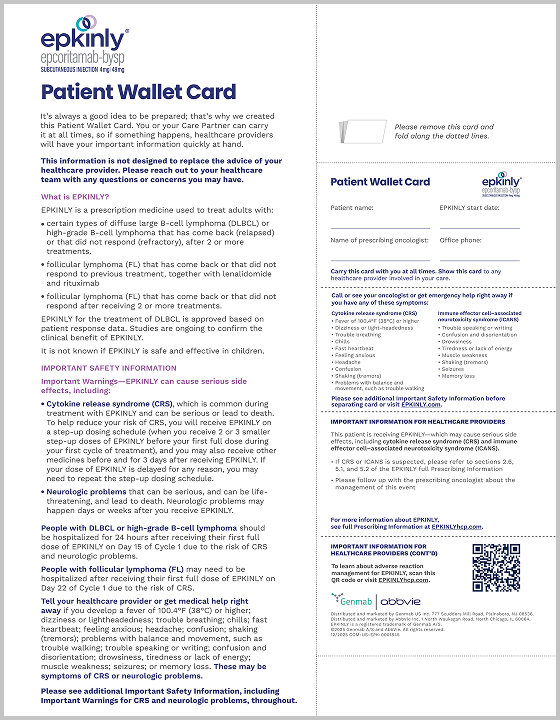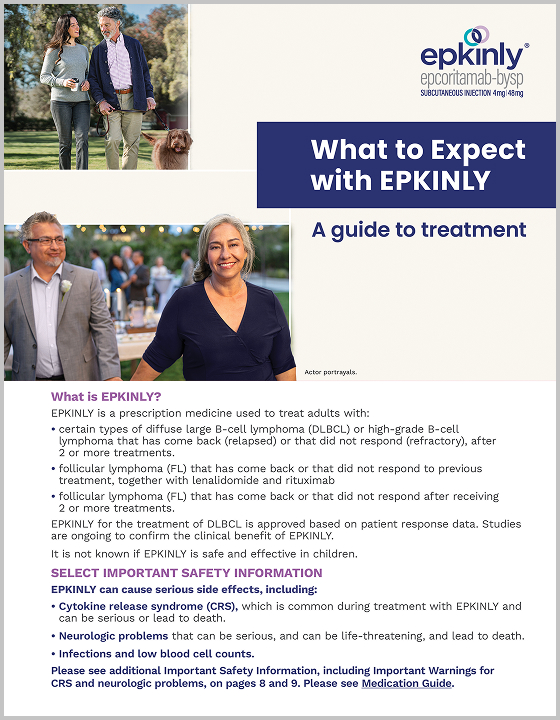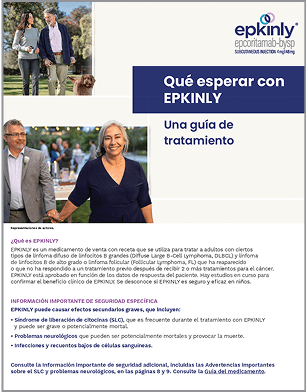Supporting someone you love
Information for Care Partners
If you’re a Care Partner, you play an important role and have become an integral part of your loved one’s healthcare team.
Find resources below:

Some responsibilities you may take on during your loved one's treatment:
Supporting your loved one
As a Care Partner, you help advocate for your loved one; you work with the healthcare team to decide on a treatment plan and help your loved one through the treatment process. Here are some suggestions you may find beneficial:
Before Appointments
Preparing for treatment can be stressful, but you can help by knowing your loved one’s medical history before going to appointments.
During Appointments
You can help at appointments by coming prepared with questions, taking notes during the conversation, and keeping track of upcoming appointments.
After Appointments
After appointments with the healthcare team, it’s important to monitor your loved one for any side effects they may have.
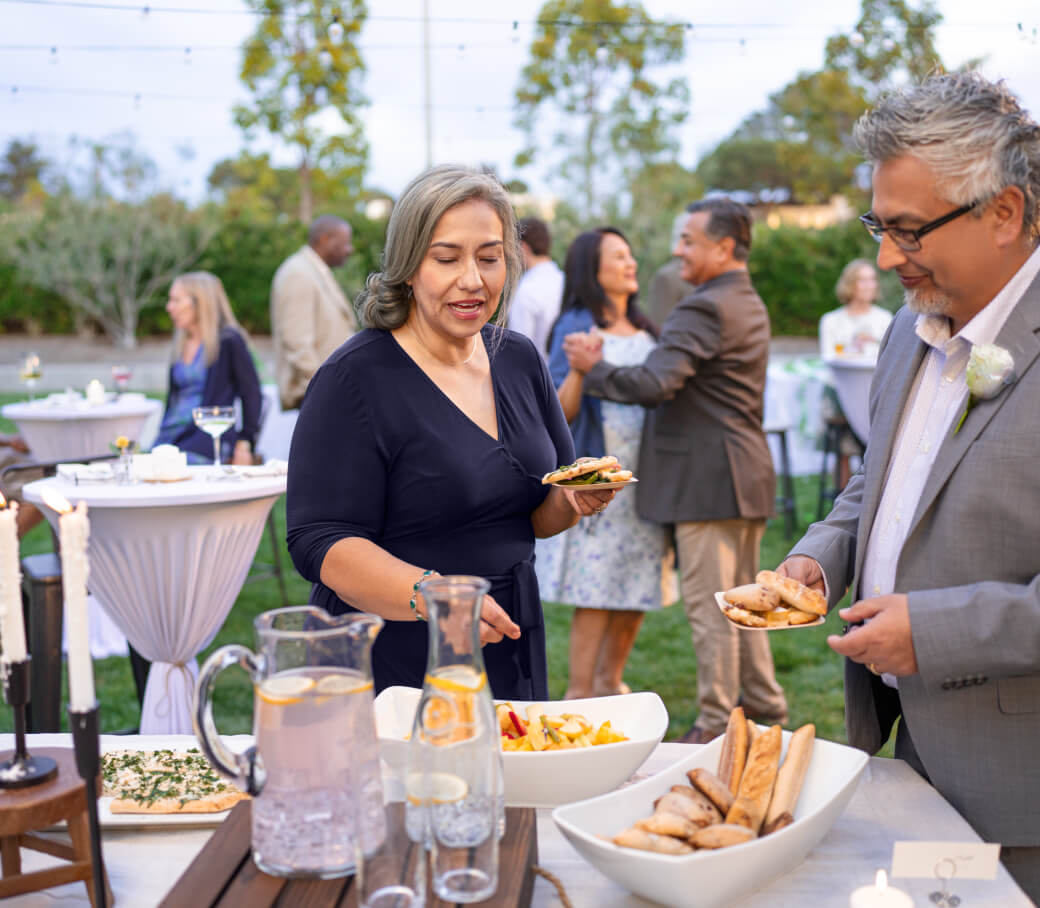

MyNavCare is here to support you
With MyNavCare, your loved one can receive personalized support throughout the treatment journey with EPKINLY from a dedicated team that cares.
Downloadable resources
Care Partner brochure
Learn how you can support your
loved one during their treatment.
Care Partner-Patient
discussion guide
Get tips on supporting your loved one
during the treatment process.
Wallet card
You and your loved one should keep
this card in the event a healthcare
provider needs quick access to their
important treatment-related information.
What to expect guide
A guide to share with your loved one
as they start treatment with EPKINLY.
Recursos en español
Consulte aquí la guía de medicamentos.
Guía sobre qué esperar
Una guía para compartir con su ser querido cuando comienza el tratamiento con EPKINLY.
Tarjeta de bolsillo
Usted y su ser querido deben conservar esta tarjeta para el caso de que un proveedor de atención médica necesite acceso rápido a información importante relacionada con su tratamiento.
Support for you and your loved one
Here are some organizations that can help Patients and Care Partners connect with others, and provide information and resources throughout treatment.

The largest nonprofit organization dedicated to creating a world without blood cancers. They fund research, provide education and support to patients and their families, and have a grassroots network of more than 50,000 active online volunteers.

They work tirelessly to help patients, survivors, caregivers, and families understand their diagnosis and ensure they have access to the support and resources they need.

American Cancer Society is improving the lives of people with cancer and their families as the only organization combating cancer through advocacy, research, and patient support, to ensure that everyone has an opportunity to prevent, detect, treat, and survive cancer.

Professional oncology social workers provide free emotional and practical support for people with cancer, caregivers, and loved ones.

A nonprofit organization dedicated to removing the financial barriers between cancer patients and their treatment.
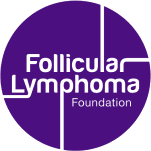
Follicular Lymphoma Foundation is dedicated solely to addressing follicular lymphoma, offering vital resources and support for patients with FL and their care partners. Their efforts and research aim to accelerate progress towards finding a cure.
There are many available resources that may be helpful to patients, families, and Care Partners dealing with cancer. The above resources are not controlled, owned, or endorsed by Genmab/AbbVie, and Genmab/AbbVie is not responsible for their content.

EPKINLY may be right for your loved one.





